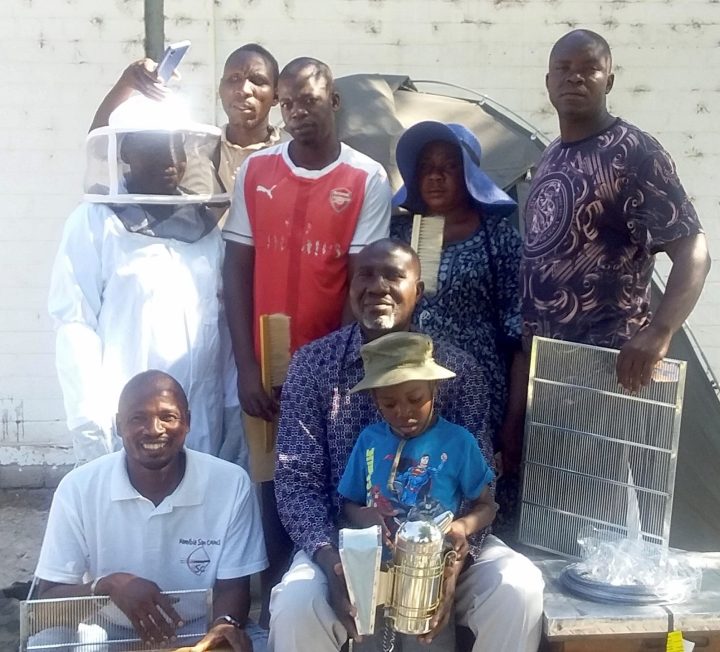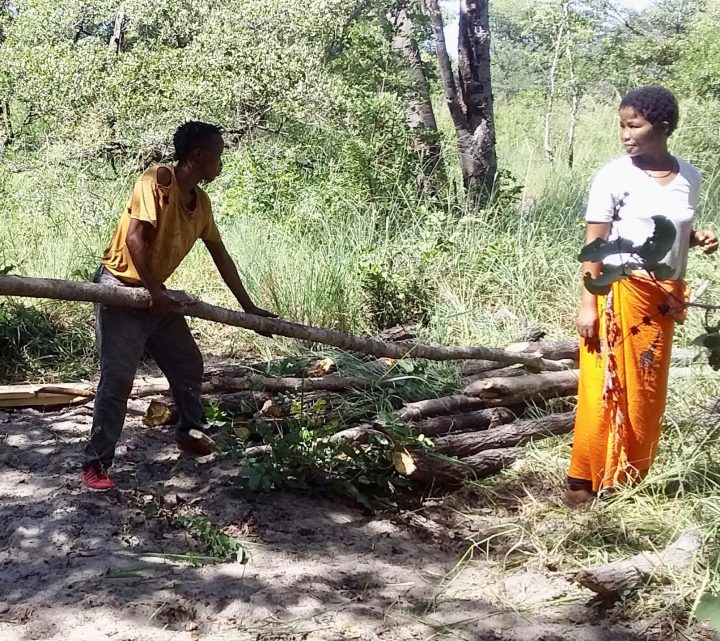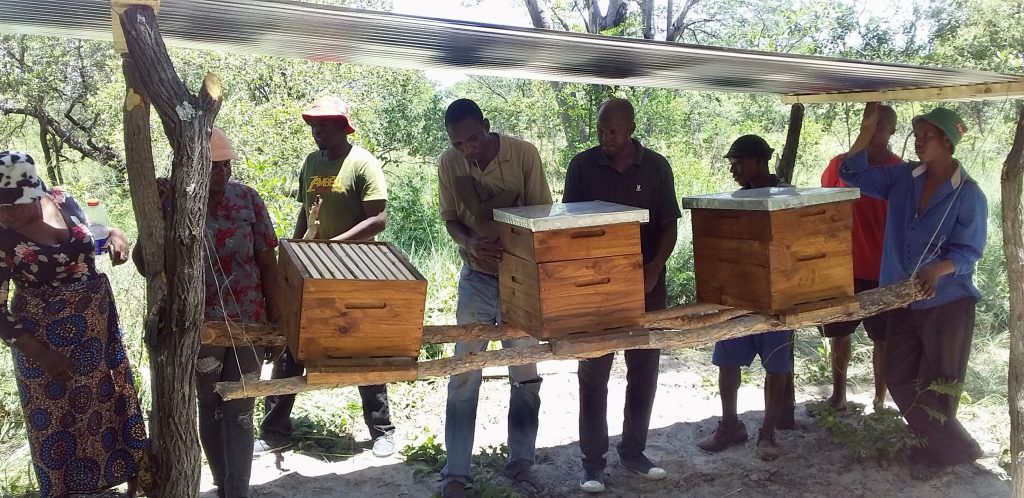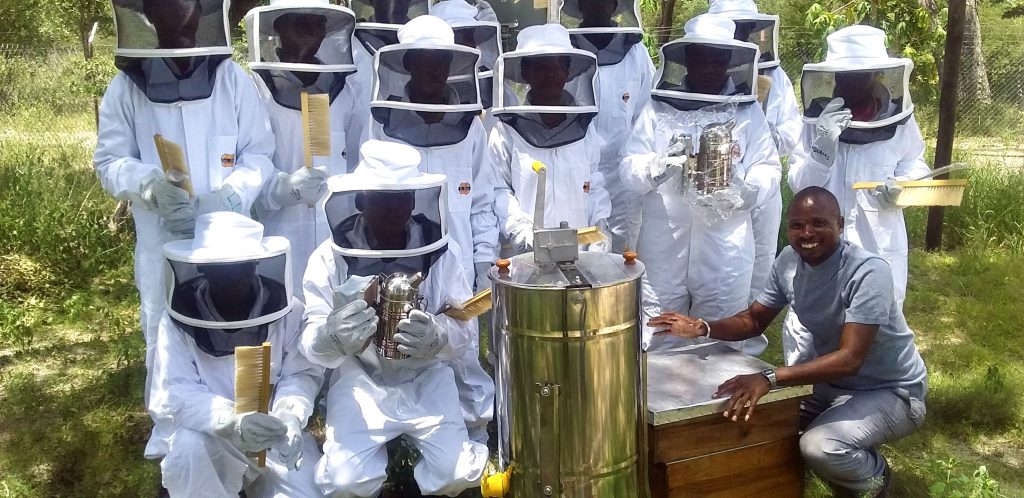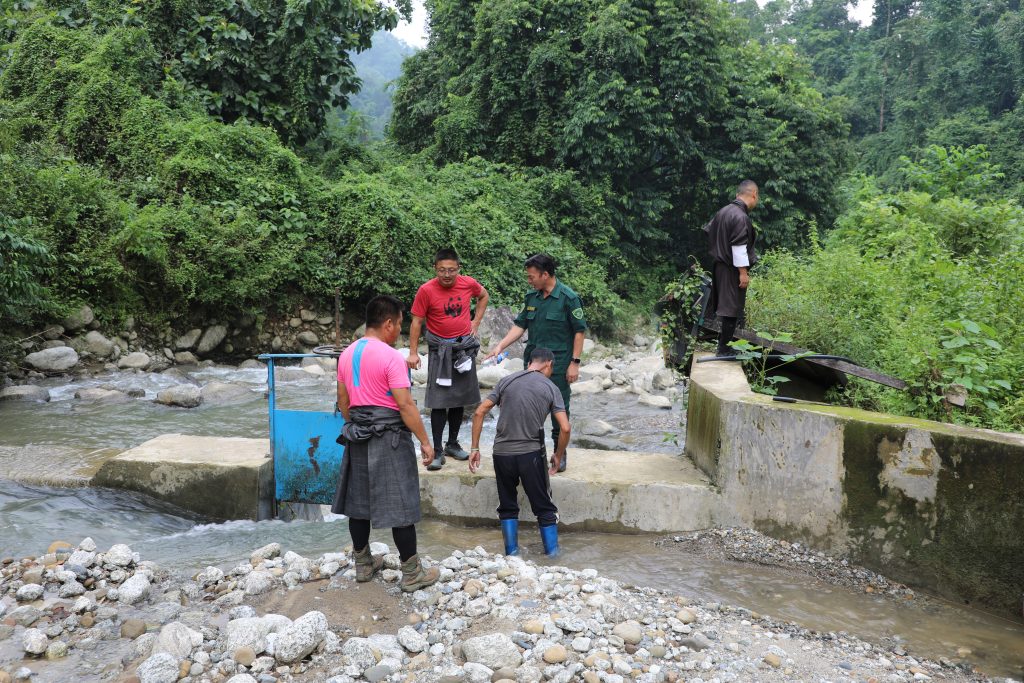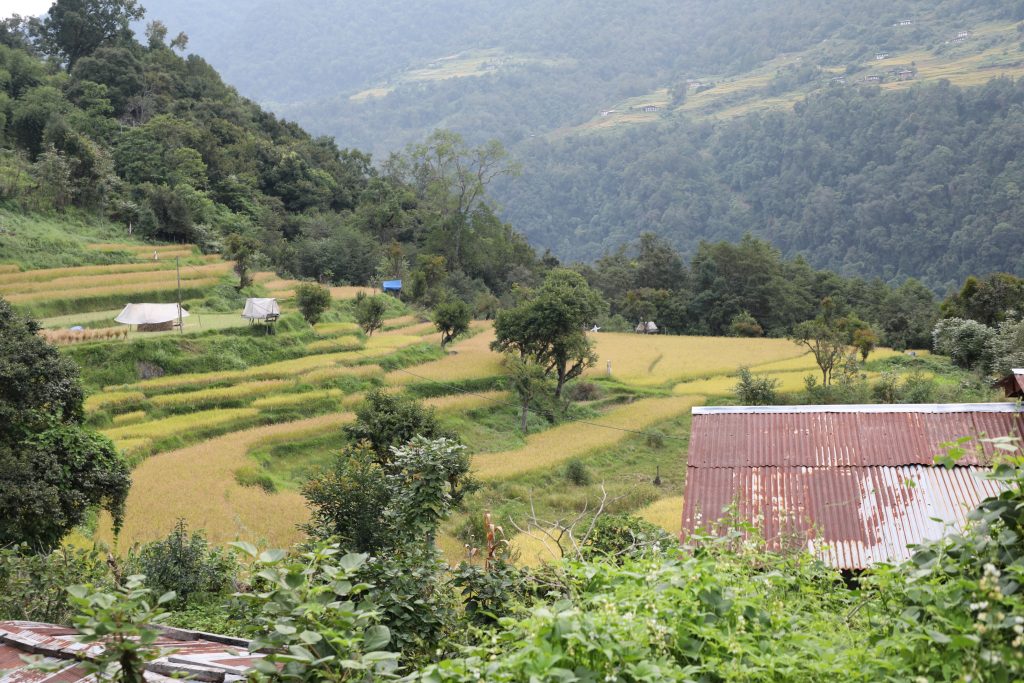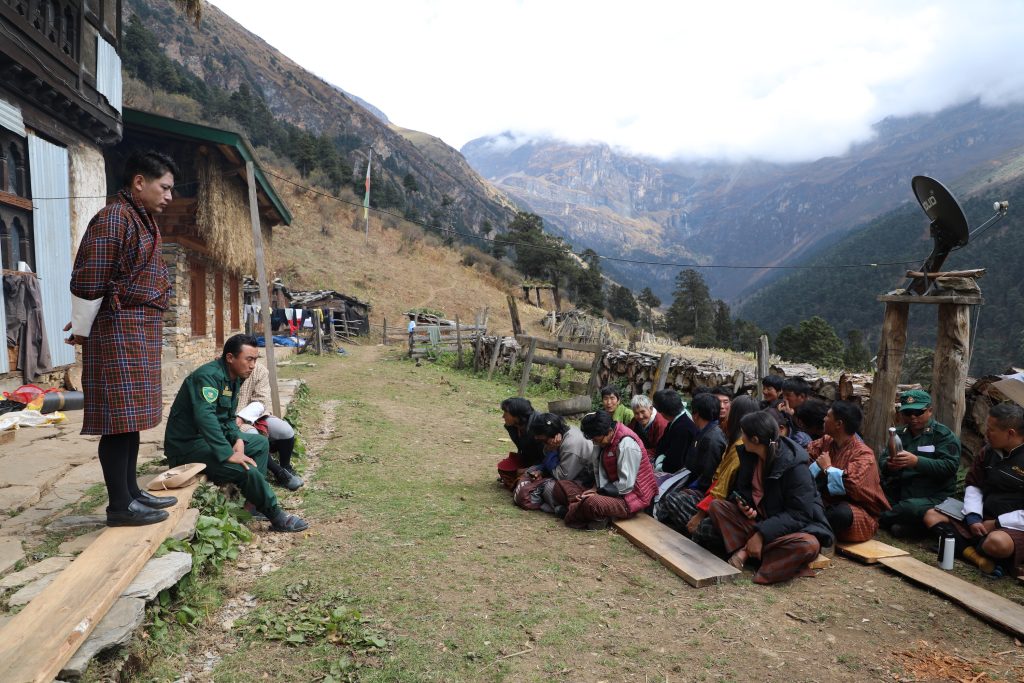Purpose
Support sustainable livelihoods and youth income generation by training 12 youths in eco-friendly beekeeping in 3 communities in the Zambezi region of Namibia.
Climate Impacts
The Muyako, Omega 3, and Luitcikxom communities reported the following impacts:
• Limited water sources
• Crop failure
• Less wild food
• Poor livestock health due to water scarcity and declining pasture productivity
• Loss of livelihood because of declines in crop yields, livestock health, and wild fruit abundance
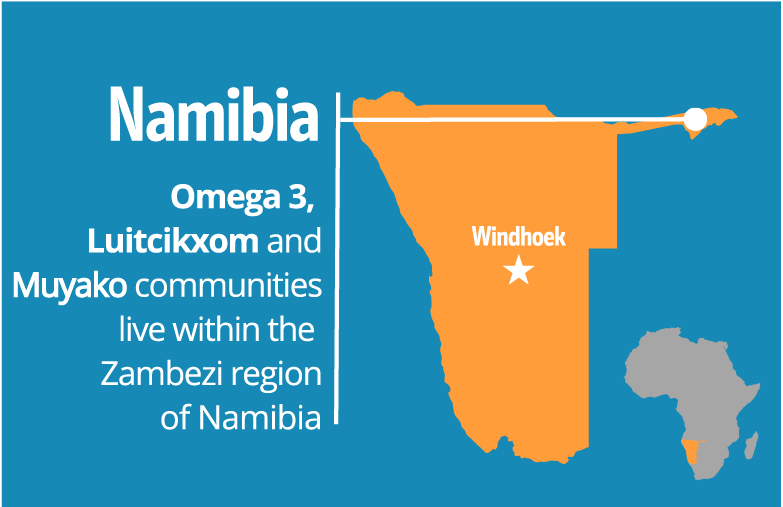
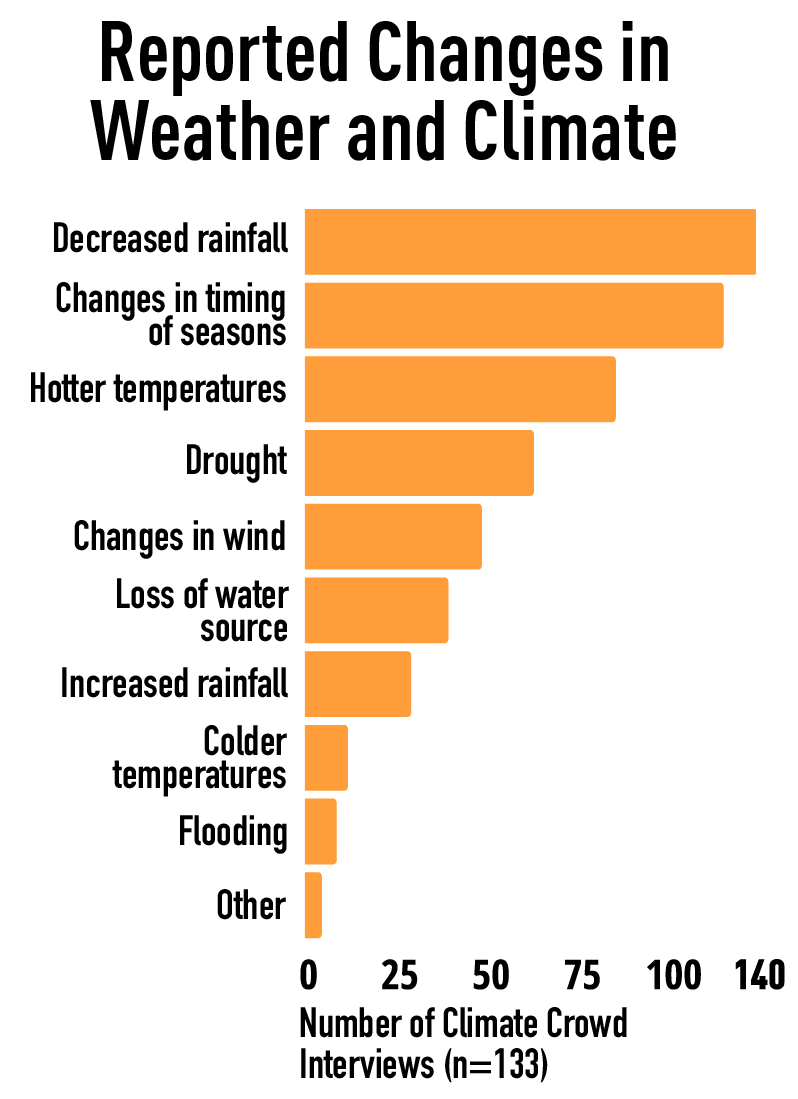
Activities
Identification of Beekeepers
12 youths (4 from each community) interested in beekeeping were selected during community meetings.
Equipment Procurement
WWF purchased and delivered the beekeeping equipment.
Development of training manual
The Bushman Honey Project (BHP), a local organization founded by an experienced beekeeper from the Khwe community, created a beekeeping training manual specifically for this project.
Workshop training
BHP and the Ministry of Environment, Forestry, and Tourism (MEFT) conducted a two-week workshop for the 12 youths on beekeeping, monitoring and inspection, honey harvesting, processing, and pricing/marketing.
site selection
Members from the BHP and the MEFT helped the youths select the specific sites for each beehive in cooperation and agreement with the community leaders.
Progress monitoring
A WhatsApp group was created where the youths, BHP, MEFT, and WWF can ask questions, address concerns, and share information.
Provide market access
As part of the workshop, the youths were taught the necessary information to market their product and generate income.
project outcomes
project design
Decreased rainfall and general water scarcity has led to poor agricultural productivity in these 3 communities in Namibia. With low agricultural output, there have been shortages of income as many people rely on selling livestock products and crops. To combat this problem, this project is designed to diversify people’s livelihoods by promoting more sustainable and less weather dependent means of generating income. Not only is beekeeping more environmentally friendly and less resource intensive than agriculture, it also helps ensure the health of the local ecosystem by preserving declining bee colonies. Additionally, by involving part of the youth population in beekeeping, this project is empowering youths by creating income-generating opportunities in a sector they previously had limited access to. Through the two-week long workshop, these twelve youths learned the necessary skills to sustainably maintain their beehives and sell their product.
The first week of the workshop comprised of the theoretical training necessary for beekeeping including the legal requirements for owning bees, the functioning and basic biology of a bee colony, equipment maintenance and inspection, how to establish a bee colony and inspect it for diseases, honey harvesting and processing, and product marketing, labeling, and pricing. During the last session on marketing, the youths were informed about the government selling price of honey, which audiences they might attract with their products, and where they can go to sell it. The workshop leaders also explained to the new beekeepers that beekeeping takes patience and it might take some time to see profits. The second week consisted of the practical training which entailed locating the specific sites for the project and setting up the equipment and beehives with the youths.

